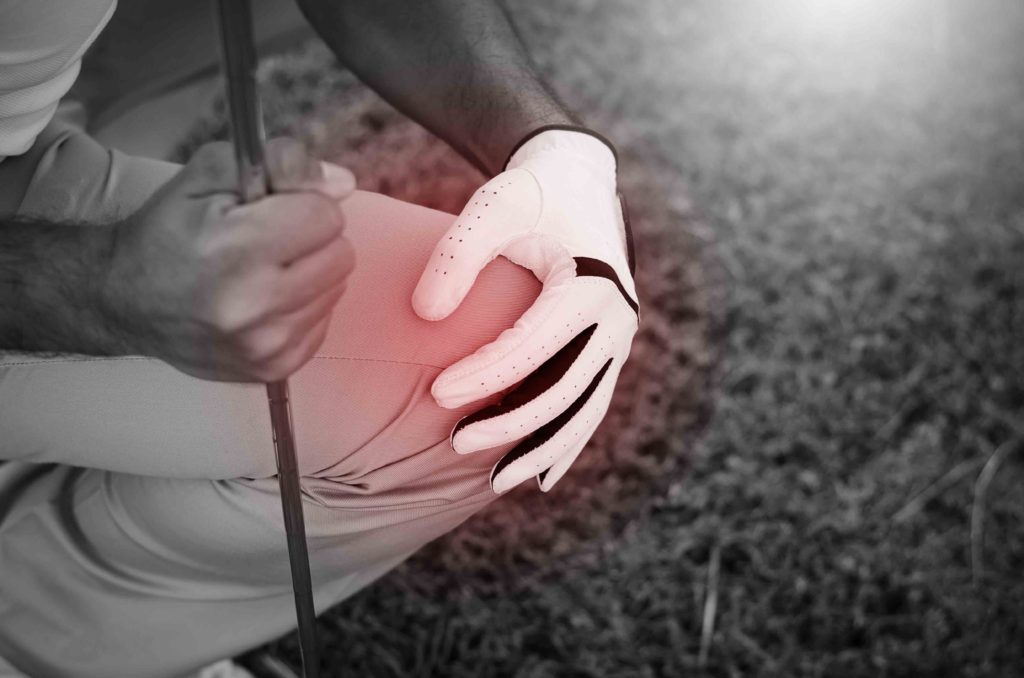Golfing With Joint Discomfort

Golf is an easy-going, relaxing, and healthy sport that around 25 million Americans enjoy every year. Older adults are especially interested in playing golf because it is easy on their joints and does not involve too much strenuous activity. However, it may be difficult to be golfing with joint discomfort, you may be apprehensive about playing the game.
Osteoarthritis is the most common issue leading to soreness and stiffness in joints. This occurs due to cartilage breaking down. Joints become more exposed to damage, resulting in aching that is very hard to get rid of. If you are over 50, you are more likely to succumb to the effects of this form of arthritis.
Your knees, hips, lower back, and wrists are going to be the most affected joints if you are a golfer or want to become one. If you are overusing them or getting exposed to too much cold, your symptoms will be worse. So, how can you go golfing with joint discomfort and reduce it as much as possible? Here are some tips you can follow:

Move Your Body
Keeping your mobility high will help lubricate your joints and get rid of some of that joint discomfort. While you want to stay active, you do want to avoid overdoing it. If you have been diagnosed with osteoarthritis, you may also want to talk with your doctor to learn what they would recommend for you as well.
Practice Conditioning Exercises
Conditioning exercises will get your joints more mobile, helping to maintain a wider range of motion for longer. These exercises will also lower the chances of you getting injured while out on the links.
Warm-up exercises are perfect for conditioning your joints. These should be done before you tee off since they will be protecting your muscles and joints from discomfort, soreness, or injury.
A simple, yet effective, exercise to do involves walking back and forth several times. You will not need to walk far! Even just ten steps in both directions will be good enough to start warming up. After that, you can take 5-10 minutes to stretch. What stretching will do for you is warm up and loosen your hamstrings, located at the back of your thighs. Stretching also helps your back get warmed up and looser.
Practice Range-of-Motion Exercises
If you want to avoid golfing with joint discomfort, you should also practice some range-of-motion exercises. These should be done before teeing off for your round. By doing so, you prevent injuries and will see better performance while playing.
Here are some exercises you can do that will help you increase your range of motion:
Arm Circles
To do arm circles, raise your arms until they are straight out and parallel to the ground. Next, begin to slowly make circles with them. You could then incrementally increase how big the circles are. Perform this exercise for 30 seconds in each direction.
Trunk Twists
Another exercise you can do to avoid golfing with joint discomfort is a trunk twist. To perform this one, place your arms by your sides while bending your elbows at a 90-degree angle. Then, twist your torso to either side of you, making sure your head turns and is looking behind you over the shoulder. Pause for five seconds to hold this position before releasing. Finally, return back to the position you started in. Repeat this exercise for the other side as well.
Practice Side Bends
To do a side bend you will want to start by placing your feet shoulder-width apart. Then, with both of your hands, grip a golf club at each end, raising it over your head. Finally, bend to one side until you feel a nice stretch on the other side. Repeat this exercise on the other side as well, doing so ten times per side. Ideally, you will lean into the bend a little more with each repetition.
Practice Slow Swings
You could also practice some slow swings to ease up any joint discomfort you may feel. Taking 10-15 slow swings that go three-quarters of the way into a full swing can help. The clubs you will find the best for this are ones that are higher lofted, such as pitching wedges. Start off swinging slowing up to 50% of the way into a swing, capping it at 75%.

Follow These Golf Tips
Now that you know what exercises to do when getting ready to play golf, you can also apply the following golf tips as well.
- Drive a golf cart instead of carrying or pulling your golf bag.
- Drive up to where you will tee off, as well as drive as close as possible to where your ball lands.
- Avoid getting too rigid when gripping the shaft of your golf club.
- Maintain consistency in the tension of your grip on the shaft.
- Use a classic swing.
- Make sure your backswing ends at the 3 PM position.
- Swing your golf club so that if brushes through the grass, giving the ball a solid strike.
- Transfer weight on a downswing from one leg to the next, taking advantage of the momentum.
Take a Joint Supplement Before Golfing
One other step you can take to prevent golfing with joint discomfort is to take a joint supplement before heading out to the links. A popular joint supplement containing natural ingredients is JointFuel360. This supplement contains a powerful combination of black pepper extract and turmeric, which has been proven to dramatically reduce inflammation. There are also antioxidants like resveratrol that further reduce the soreness and stiffness you feel in your joints. Adding JointFuel360 to your daily regimen will provide you with even more long-term benefits if you have joint issues.
Conclusion
As you can now see, golfing with joint discomfort is not something that has to be true. A few specific warm-up exercises, the application of some golfing tips, and taking a joint supplement like JointFuel360, will all help you have a much more enjoyable time out golfing.
The post Golfing With Joint Discomfort appeared first on Joint Fuel 360.
Comentários
Postar um comentário